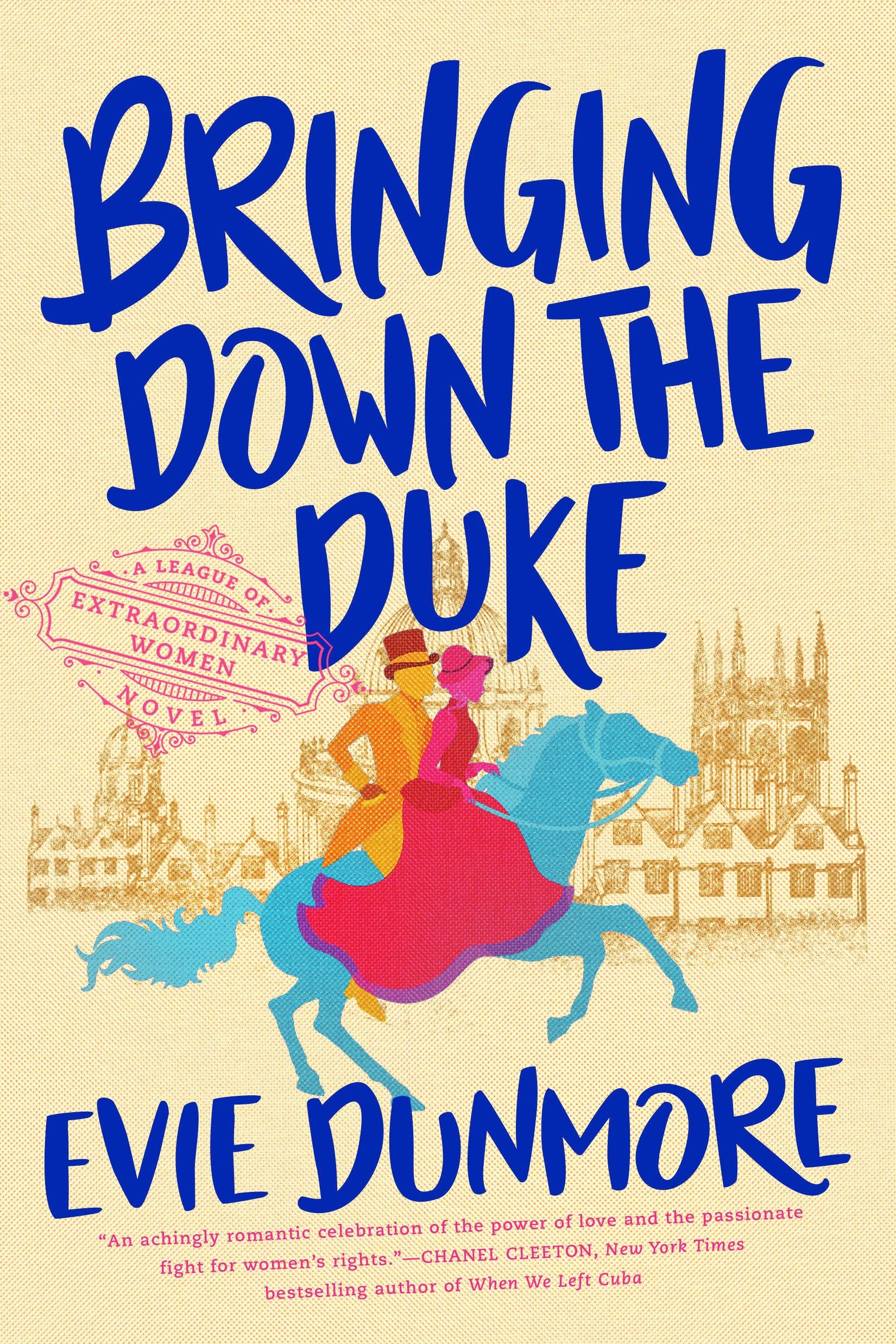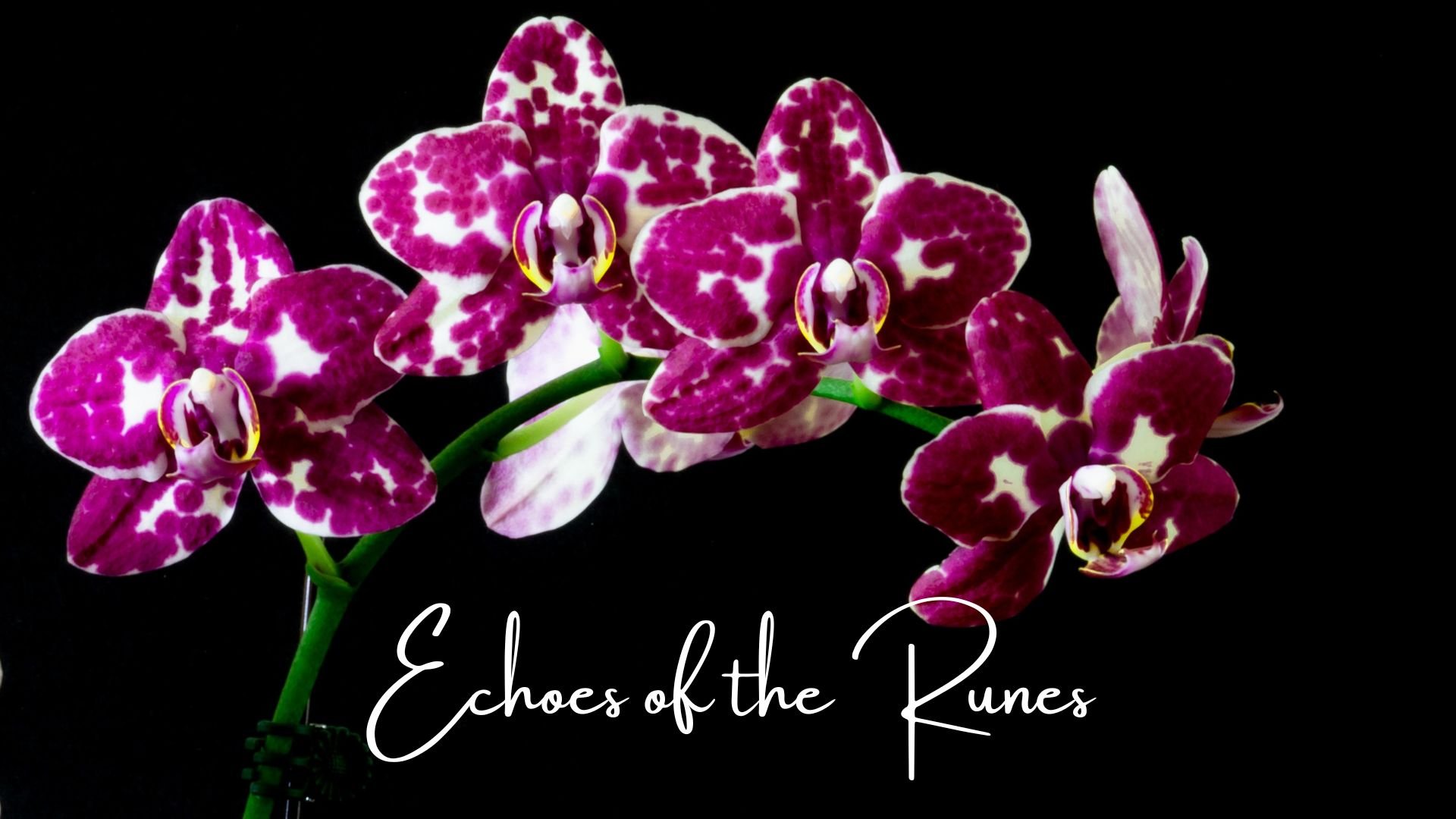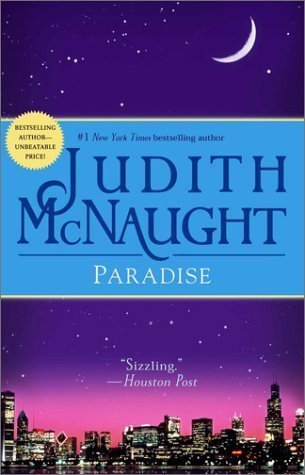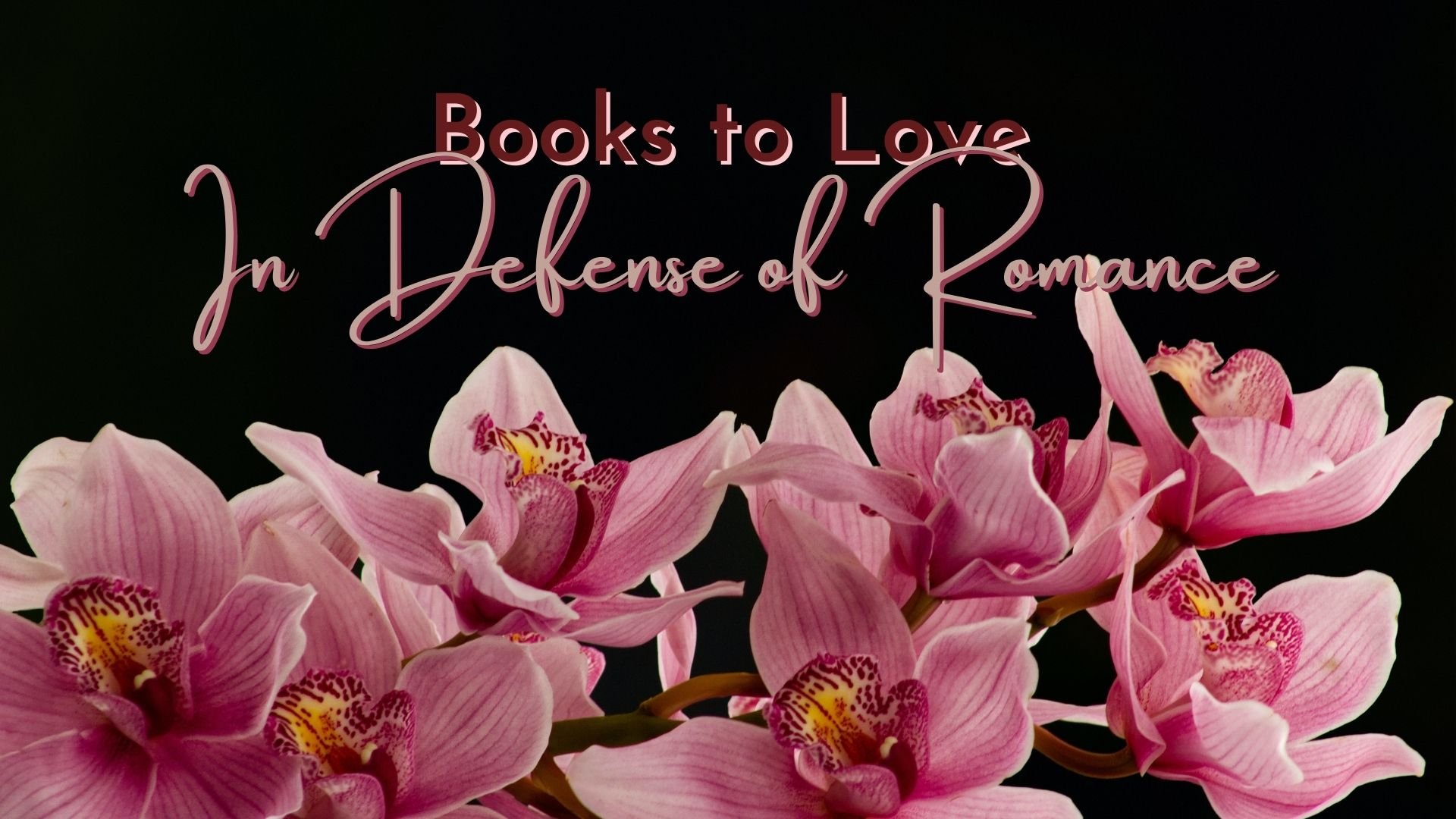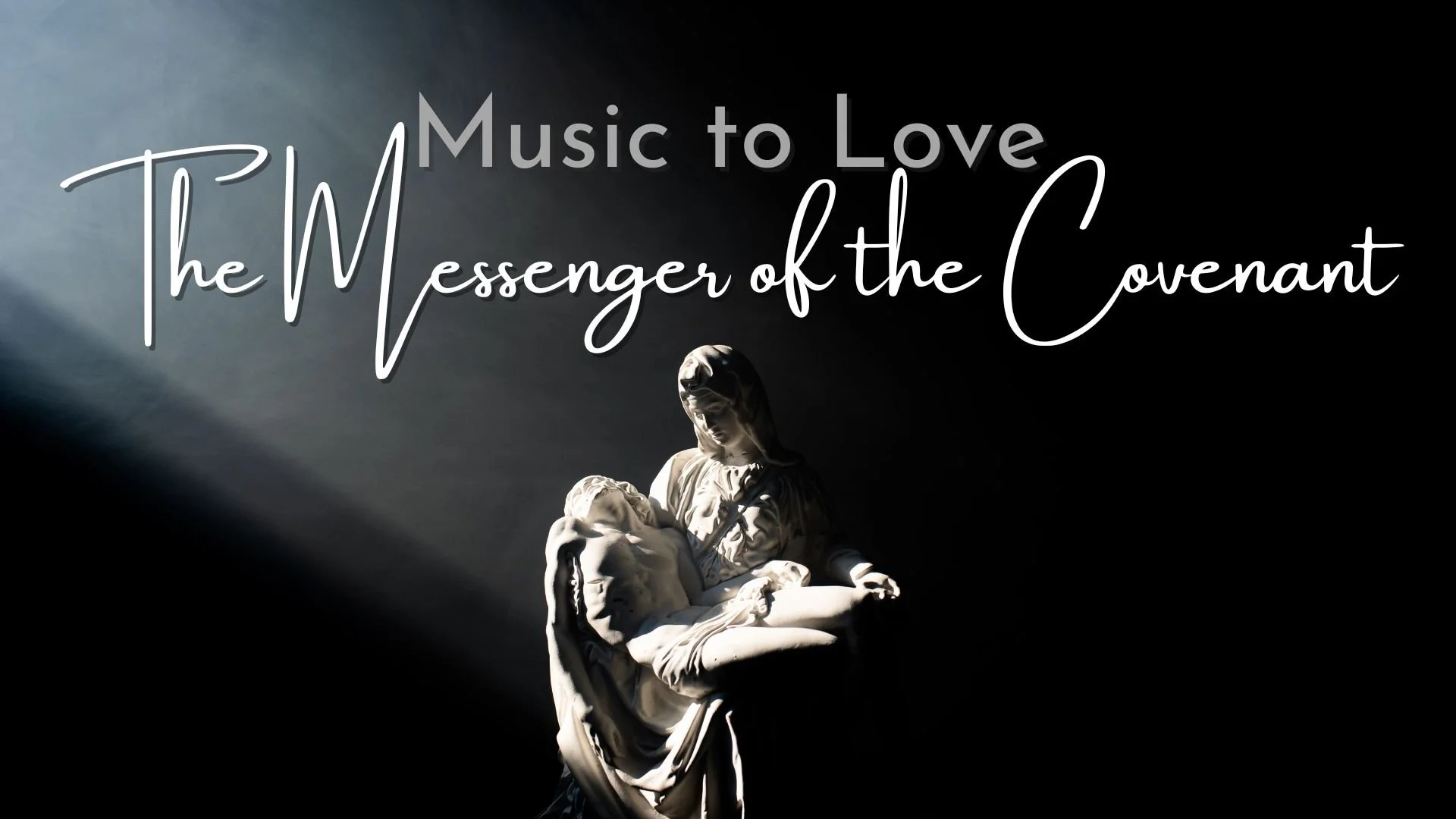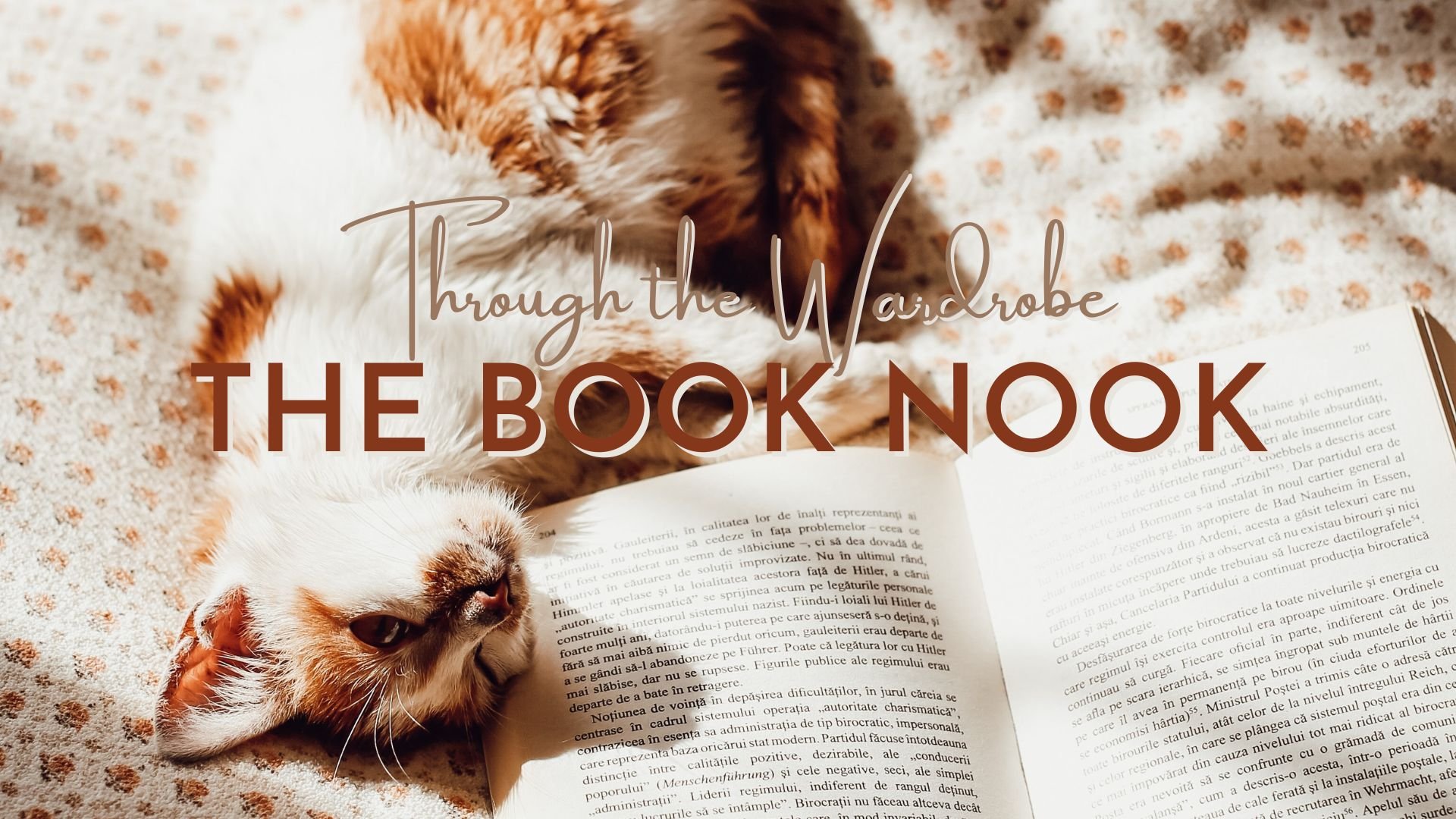Books to Love: In Defense of Romance
If I’m being honest with myself- a thing I heartily encourage amongst us all, dear readers- I have to admit that one of my favorite pastimes is reading a well appointed love story. Here at Whiskers, Books to Love is a solid section of the blog and in the many Books to Love posts, you, dear readers, have found a plethora of recommendations for books that I have thoroughly enjoyed. I would venture to say that more than half of those books contain a solid love story that is the crux of the plot line. It might not be the only elements that absorbs the readers, but it is a big catch. To name a few that I come back to often: The Scarlet Pimpernel, The Pink Carnation Series, A Hundred Summers, etc. (The posts devoted to these particular books are all linked for your ease and enjoyment if you have missed them.)
However, while those books might contain a romance, I wouldn’t solely categorize them as ‘ROMANCES.’
The Romance genre has gone through a lot of ups and downs. For many years, any woman or man who read books from that genre were considered to be unfulfilled in some respect.
There is a stigma attached to it. Pure bohunk! People who enjoy romance novels straight out of the bodice-ripper covers in the romance section are not unfulfilled housewives/husbands looking to spice up their lives. Actually, my husband, a chief engineer in the maritime industry, has known several men who enjoy reading romance novels, too. Men who are highly educated and well-traveled, who have lived in countries all over the world, and experienced many cultures.
More recently, there has been an embrace of the romance genre. We’ve seen this with the popularity of Erotica and how well it has been embraced by society. While I have thoughts on this and most of them are not good, it has opened the door for people who enjoy romances, whether erotica or not, to be more vocal about their preferences without fear of being dismissed as foolish or silly or unsatisfied with their own personal life.
Not all romance novels are created equal. One fun filled foray onto Smart Bitches, Trashy Books Blog and you will find the most hilariously reviewed bad romance novels. Truly, perhaps the bad reads exist so we can laugh at one of these witty women’s reviews. Side note, but most of these women are highly educated, professional women who, like me, simply enjoy a good love story.
Today I am sharing with you some of the romance novels that I have read that are really enjoyable ones. None of them are Erotica as Erotica is not a sub-genre I enjoy. The novels I am sharing today are ones that fit specific criteria that I want when I read a books. Each book, unless noted, is an example of an author who has mastered their craftsmanship; the writing is excellent. Not only do they utilize the language with precision, but they have also mastered the art of infusing humor or pathos into the narrative with the correct chose of words. Each novel is in possession of a story that is well-appointed; whether it be the plot or the characters, the story is a success in conveying the appropriate emotional journey for the reader. And, last, but certainly not least in my opinion, these novels all pay homage to that little spoken of rule in that while they do have moments where the rollercoaster of emotion is very low, they are all still lighthearted. While none of the men or women are trivial or stupid, they are not striving for a heavy social justice narrative which is all too often found in novels today. And while that most assuredly has its place, it does not need to be everywhere. It’s perfectly acceptable to want nothing more than a novel that thoroughly entertains the senses and leaves the reader smiling in the ends. So, if you’re feeling fancy free, check these titles out.
Ravishing the Heiress • Sherry Thomas
Yes. I am actually admitting to reading a book that looks entirely like a bodice ripper. I know we’re all supposed to be mature about this, but I still struggle with a stigma against the romance genre. While I do not believe that all the women and men who delight in reading from this genre are disappointed housewives/husbands looking to add excitement to their humdrum lives, I do have to contend with the niggling voice in the back of my head saying that if you find enjoyment in these novels, you are somehow stupid or lack intellect.
Nothing could be further from the truth. I offer this book as proof. Having met Sherry Thomas and had the pleasure of speaking at length with her, I can personally attest to the fact that she is neither stupid nor lacking in intellect. She is well read, well versed, and profoundly intelligent. She also happens to love a well appointed romance. And, dear readers, so do I.
I was first introduced to her through her Lady Sherlock series, which I discussed in more depth in Books to Love: The Lady Sherlock Series. This is the first romance novel of hers that I have read, and it was everything that I hoped it would be.
The only things that endeared me to this read is the historical context of it. Set in the late 1880-90s, Ravishing the Heiress followed the story of Millicent Graves, the daughter of a wealthy gentleman, who is poised to marry George Edward Arthur Granville Fitzhugh, the new Earl Fitzhugh, who has inherited an impoverished estate and desperately needs funds to save it. Millie was raised with the understanding that marriage had nothing to do with love; it was simply a business contract, to put it unromantically. But Millie has read her fill of Austen and Bronte, and she has secret desires of her own. So, imagine her surprise, when she meets her future husband and feels immediate stirrings within her heart that can only be called love.
There’s one problem. George Edward Arthur Granville Fitzhugh was not supposed to be the one who inherited the estate. It was thrust upon him by the death of a distant cousin and because of his great sense of duty to the title, he must set aside his own desires and do what must be done. What does he have to set aside?
Fitzhugh is in love. Not only is he in love, the woman who he loves returns his affection. But duty calls and he must harken.
It may have been love at first sight for Millie, but she knows that it is no such thing for Fitzhugh. So, she proposes a compromise. For the first eight years of their marriage, they will be a marriage in name only. She will fulfill all her social obligations as will he, but they will not share a bed. When those eight years are up, they will provide the estate and title with the obligatory heir, and if Fitzhugh or Millie still wishes it, they will go and lead their own separate lives.
This is a release of sorts for Fitzhugh. It also provides the foundation for a true friendship to form between the two partners.
The story begins at the onset of the eighth year. The woman who Fitzhugh has loved all this time has returned to England newly widowed with her children. Millie sees the writing on the wall. But she will keep face. She will not let Fitzhugh know how much her heart is invested in the life which they have built together. And it is a good life. They have become the dearest of friends to each other, relying on one another advice and companionship.
But there’s a bargain that must be honored and an heir that must be produced. And that’s where all the fireworks come in.
Sherry Thomas write superbly. Her historical detail is beyond reproach. And her characters maintain an integrity that makes them human and relatable. And while the plot line may seem far fetched, within the context that it is written, it makes sense.
Bringing Down the Duke • Evie Dunmore
Evie Dunmore is a new kid on the block for me. Discovering her was part of the resolution that I gave myself last year to read all new authors. Dunmore is one of the authors I found that I really enjoyed reading.
Bringing Down the Duke is the first in her A League of Extraordinary Women series. The series centers around a band of female suffragists who attend the ladies college at Oxford. They are a small group, from many walks of life, and they each bring a unique perspective to the suffragist movement at large. These stories take place during the infancy of the suffragist movement in England which was circa late 1870s-early 1880s. I appreciate them for that reason as it shows how a movement draws seemingly disparate people, perspectives, and persuasions to champion a cause.
The story of Bringing Down the Duke was one that captured me the moment we met the protagonist, Annabelle Archer. A stroke of luck lands Annabelle at the University of Oxford on scholarship. Her acute interest in ancient artifacts, particularly Greco-Roman, makes her a worthy scholar. The only stipulation for retaining her scholarship is that she must support the suffragette movement. This is she happy to do as the circumstances of her life has led her a merry dance of abandonment, ostracization, and loneliness. Add to this pecuniary, and you have the perfect ingredients to produce a passionate suffragette.
Daughter of a country vicar, you would expect Annabelle to be quiet and mild mannered. Truth is, in many regards, she is precisely that. However, because of heartbreaking betrayal coupled with her own curious nature, she holds the guilt of her late father’s broken heart squarely on her shoulders. Because said betrayal- and I won’t tell you want it was- also amounted to shame and rejection in society, she was left with no money and no reputation. Dire straits has led Annabelle to dire measures. After her education, she is looking at a life as a lady’s companion or a governess. So, Annabelle is gathering her rosebuds while she may and hoping that in the course of her studies, she might encounter an opportunity, be it an archeological dig or a fellowship, that will allow her to escape the fate of tedium ad nauseam.
Back to the suffragists. Their first assignment is to sway the cold, impenetrable Duke of Montgomery, Sebastian Devereux.
A powerful MP, Montgomery leads his party with the unstinting support of Queen Victoria herself. Weekly, he is in conference with her, keeping her abreast of the nuances of political machinations within parliament. Of particular interest to the Queen is the suffrage movement; she does not approve. And by default, it stands that Montgomery doesn’t approve either.
Enter the suffragists. With little left to them but to make their voices heard by protest and public gathering, the suffragists march outside of parliament. This is where fate steps in.
The unapproachable Duke of Montgomery strides down the steps into the mayhem of suffragists just as the police decide to rein in the crowd. Amidst the carnage that ensues, he sees Annabelle Archer injured. While he may not agree with her politics, Montgomery is a flawless gentleman; he steps in to offer aid.
From this moment on, Annabelle is given an ‘in’ into Montgomery’s office, as it were. She intrigues him. Equally, he intrigues her. But personal intrigues and desires have no place in either of their lives. You see, for both Annabelle and Montgomery, their lives are not their own. For Montgomery, the grand line and legacy of the dukedom rests lugubriously on his shoulders; he must uphold the title at all costs. For Annabelle, she can’t afford to entertain any fanciful notions about a different sort of future. And while there may be perfectly acceptable options open to her that society allows, though they do not wholly approve of, Annabelle knows enough about herself to know that she could never participate in such a scheme.
Bringing Down the Duke is a wonderful romp through Victorian England. While the period may be historical, the dilemmas and choices the characters each face are entirely modern. You see, while history and trends, politics and culture may change, men and women will always retain a certain kinship with those who have gone before us. People still face losses, disappointments, love, companionship, friendship, and the like.
Echoes of the Runes • Christina Courtenay
How many of you enjoyed the History channel’s original series Vikings? I did. I knew very little about Vikings when I started watching the show, and while I know a little more now because it intrigued me, I am by no means learned in the subject.
As you’re aware, historical fiction is my favorite genre. Until this novel, I had not read anything related to Viking excavation or even Viking fantasy.
Christina Courtenay’s Echoes of the Runes has a little bit of history, archeology, romance, and fantasy all rolled into one. With ingredients like that, it’s not hard to see why I would enjoy it as much as I did.
The premise of this story is what drew me in. I cannot tell you how many times I’ve imagined receiving a phone call or opening the mailbox to be informed that I have inherited a piece of property somewhere idyllic. (For me that would be Scotland, one of the Greek Isles, or Wyoming- nothing like really mixing it up, huh?)
In Echoes of the Runes, Mia receives a call to learn that her Swedish grandmother has passed away, leaving her with the summer cottage of which Mia has many fond memories. Mia is a scholar in Ancient Archeology at a museum in London. She is engaged to Charles, a hotshot businessman who is thoroughly enamored with London life. When he learns that Mia has inherited a summer cottage in Sweden, he immediately tells her to sell it and then reinvest the money in a posh flat in London for them.
Mia is not able to let go of her past so readily. Rather than part with the cottage as Charles suggests, she decides to take the summer there, telling Charles that she will use the time to go through her grandmother’s belongings and get a better lay of the land. The second excuse that she uses is what pleases her bosses. There have been a certain number of discoveries in the neighboring area as well as on her grandmother’s property that make it of keen interest to a local university for an archeological dig. So, killed two birds- the fiancé’s objections and her work commitments- Mia packs her bags and heads to Sweden for the summer.
Once this is settled, she starts to go through the legacy of things that her grandmother bequeathed to her. Among them is a ring that has been in Mia’s family for generations. It’s a gold ring fashioned in the shape of a serpent. When Mia puts that ring on, she feels a supernatural connection to the past. Not her past or even that of her grandmother, but of a past so ancient and removed it frightens her.
Enter Berger, the man heading up the archaeological dig. As per agreed, Berger is staying in Mia’s summer cottage as to be a constant presence at the dig.
All of this set up is interesting, but what really made me want to keep reading this novel is the story that unfolds in the ancient world among the Vikings- the very Vikings that Mia, Berger, and his crew are uncovering in the present. Through dreams and visions, each connected to her wearing of the serpent ring, Mia begins to put together bits and pieces from the past culminating in a climax that transcends time.
Christina Courtney’s research is spot on. Her details are what makes this read interesting. However, I am not a great fan of her writing. As I myself has written before here at Whiskers on Kittens, one of the greats hallmarks of good writing is Showing, NOT Telling. Unfortunately, Courtenay does a lot of telling. Yet, because I was drawn so thoroughly into the story, I found that the writing was not that distracting to me, which says a whole lot. I do recommend this book, warts and all.
How to Tame Your Duke • Juliana Gray
So here’s another novel that belongs in that bodice ripper section. Like with Sherry Thomas, this novel is another example of never judging a book by its cover.
Juliana Gray is the nom de plume of Beatriz Williams, who I have written about many times here at Whiskers. As you would expect from Williams, the novels she writes under Juliana Gray are well fleshed out. The writing is lyrical, almost poetic. Sophisticated humor also finds itself in the mix, both in the writing itself and the discourse between characters.
What I particularly love about How to Tame Your Duke is the fact that the foundational plot line borrows heavily from Shakespeare’s Twelfth Night. Princess in disguise, mistaken identities, mystery, and love born out of tragedy. These are the trope that Juliana Gray builds this story on and it’s a positive delight to read, much like imbibing of a much loved delicacy such a creme brûlée. Its ingredients demand the proper handling, the mixture cannot be thrown together without care, the baking must be watched and gauged with an astute eye, and the outcome is sublime.
I confess that I have not finished this book yet. I’m reading it as I write this post, but I have found the read so diverting that I have to share it with you.
Firstly, the premise. If you recalled my Books to Love: Once in the Highlands…, you’ll be familiar with Juliana Gray, and you’ll also have encountered one of the minor characters from this novel. The Duke of Olympia.
The story starts in the dead of night. The Duke of Olympia is roused from his bed to attend to the most pressing of matters. His nieces, the three disappeared princesses of Holstein-Schweinwald-Huhnhof, are waiting for his audience in his study. They have arrived under cover of darkness complete with their governess and their corgi. Note already the subtle humor to be found in this novel. Corgis and English strains of royalty simply belong together.
Holstein-Schweinwald-Huhnhof is in the midst of a political upheaval. Their father as well as the eldest sister, Princess Louisa’s, husband have been assassinated and the princesses have run for their life.
When they show up on his doorstep, Olympia is left with the problem of what’s to be done with them. Spies, as is their insidious way, are everywhere, and he needs to make sure the daughters of his most beloved sister are kept out of harms way. And what better way to keep them out of harms way than to put them out into the world disguised in ordinary professions that no princess would deign to take up.
How to Take Your Duke follows Princess Emilie, the middle princess, who is a true scholar of Greek and Latin. Olympia helps disguise her as a young gentleman tutor and sends her to the estate of his reclusive friend the Duke of Ashland who needs to have his son tutored so he can pass his entrance exam into Oxford.
Dressed in sturdy if slightly unfashionable attire and sporty itchy whiskers on her face, Emilie travels to Yorkshire (of course, as Gray writes) and is immediately thrust into the hubbub of an inn fight started by none other than her future charge. And, just as a fist is about to pummel her face, it is none other than the Duke of Ashland himself who provides her escape. At first glance, she is frozen by the sheer beauty of his profile, perfection for any sculptor. But then he turns to face her full on and she is met with the decimation of a man who has endured brutality. The entire right side of his face is destroyed- shattered jaw, missing eye, no cheekbone to mirror the perfection on the left side of his face. It is a shock, but Emilie has been brought up to keep her opinions and thoughts in tight check, so after a brief slip of shock, she schools herself to remain implacable.
It is this very thing that first sets the new tutor in the Duke’s good graces. He does not travel outside the confines of his estate often, but when he does, it is usually with the right side of his face masked. He has becomes a recluse because he no longer wishes to be a figure of fun or pity in society. He just wishes to be left alone.
But while Emilie may be in disguise as a tutor, in the employ of the Duke, she is still a princess and accustomed to speaking her mind. This dichotomy makes her both an annoyance to a man as well as alluring in an unsettling way.
As I said, I have not finished this one, but it has all the promise of a read to remember and enjoy again when I want that escapism that romance provides.
Paradise • Judith McNaught
Now, for a modern romance. Recently, I have revisited Judith McNaught. One of the reasons for this is because while I do like a good love story, I also enjoy reading a good thriller. Judith McNaught melds these two genres well in her novels.
Paradise is the first novel that I read by McNaught way back when. I recalled absolutely loving it when I was younger, but, as the years have gone by, I could not recall the nuances of the story. I remembered bits and pieces of it, but the whole escaped me.
I’m glad I took the time to reread it. While the older, wiser me may find certain faults with the book, on the whole, it was still as enjoyable to read this time around as it was the first time.
Meredith Bancroft has suffered the whole of her life from her mother’s indiscretions. And while she has been raised exclusively by her father, with no memory of her mother who has not tried to contact her for decades, she still feels keenly the shame her mother brought on her. You see, while Meredith may be the daughter of a millionaire and heiress to the Bancroft fortune as well as the business, a thriving, iconic department store on par with Neimann Marcus, she is afforded little freedom. Every move she makes is critiqued. She is not allowed to date. Her behavior is watched under a microscope. Even the clothes she wears are not the ones she picks for herself, but the ones that her father approves for her.
Until, one night when she yields fully to a moment of rebellion and ends up ushering in a love and passion of a lifetime. One unexpected night of passion leaves Meredith pregnant and in a panic. She can’t tell her father. Not after what her mother had done. So she goes to the only person she can turn to: Matthew Farrell.
A baby is the last thing that Matthew Farrell needs. His future will not be in the small Indiana town he grew up in working as an auto mechanic. He has other plans. But regardless of his plans or the time crunch that he’s under to make them happen, he has too much honor to ignore a woman in need, particularly a woman who has haunted his thoughts since the moment he met her.
Matthew brings Meredith home to the farm house where his father and sister live, and together with his family, they come to a conclusion. The timing may not be perfect. Meredith’s father might be furious. Matthew and Meredith may have known each other a handful of hours. But, they know there is something between them, and, now with a baby, they are going to get married and give their burgeoning love a real try.
While the young love she has found with the unlikely Matthew Farrell, a man who comes from the wrong side of the tracks, may be sweet at the start, it is followed by deep betrayal, pain, and hurt.
Fast forward a decade. Meredith holds a prominent position within the Bancroft corporation. With her uncanny business acumen, she is expanding the reach of Bancroft department stores into other affluent markets around the country. She is engaged to a brilliant attorney who her father approves of completely. From the outside, her life is on the pathway to perfect.
Her engagement is announced in all the society pages. And just as everything is lining up nicely for her happily ever after, Meredith’s fiancé makes the discovery that the divorce that her father obtained for her all those years ago was actually filed with a bogus attorney.
Meredith is not divorced. Now, after working through the heartache and coming out on top of it, she has to face the man who put her through hell. Only he’s not a lowly mechanic from some podunk little town in Indiana anymore. He’s a multi-millionaire business man who has made the cover of magazines from Forbes to GQ to People. Matthew Farrell is a formidable man.
When Meredith finally comes face to face with him, she is met with the surprise of her life. Matthew Farrell treats her like a man who has an axe to grind. He treats her like she is the one who wronged him. And one thing is glaringly obvious. He has no intention of making this easy on her.
Paradise is nuanced. And, it has a whole other story going on in the background that makes the love story all the more thrilling and intense. If you haven’t read anything by Judith McNaught, this is a good introduction to her work. Keep in mind, these books take place in the late ‘80s-early 90s, so the technology, fashion, and conversation may seem a little dated, but I enjoyed the blast from the past. Perhaps you will, too.
If you watched The Lost City of D starring Sandra Bullock and Channing Tatum (with the most fantastic bit part by Brad Pitt), you’ll know that it’s a story about a woman who is a romance novelist and the adventure she finds herself on because of the historical niche she chose to write her stories in. The villain the story, who is played so well by Daniel Radcliffe, says to Loretta (Bullock’s character) that the high stakes, perilous journey she’s on is not something from her vapid or cheap novels. For so long, romance novels have been derided as vapid and cheap and the people who read them as unintelligent and simplistic to the point of foolish. But that’s not the case. So many romance novels have some great plot lines going. Are some over the top and implausible? Yes. But, does that really matter? Can something be escapist and fun without being derided and ridiculed? My vote is: Yes, it most certainly can.
So, whether you’re someone who has found enjoyment in a good romance novel or you’re someone who heretofore has kept romance novels at arms length, it is my hope that the smattering of novels I’ve highlighted today may whet your appetite to explore the genre.
Now, if you’re a reader of romance, please leave us all some of your suggestions in the comments below or on Whisker’s Facebook or Instagram pages. After all, every reader loves another reader who pays it forward with a good recommendation.
Happy reading, dear readers!





